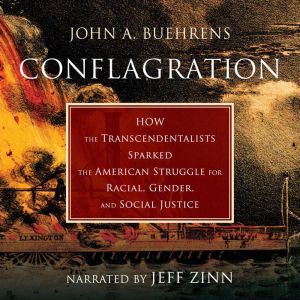Quotes
“A clear, vibrant picture of the varieties of heroism that appear in battles for human rights.”
—Kirkus Reviews
“An . . . engaging narrative. Buehrens’s take on Transcendental activism will appeal to scholars interested in exploring antebellum social justice concerns.”
—Publishers Weekly
“A well-written introduction to the Transcendentalists and a complement to Philip Gura’s more idea-driven American Transcendentalism.”
—Library Journal
“The book is a historic-biography which also serves as welcome primer on ‘how to become more self-transcendent in these difficult times.’”
—The Boston Globe
“A deftly organized, comprehensively detailed, soundly documented, expertly written, thought-provoking and unique contribution to both community and academic library American Social & Cultural History collections.”
—Midwest Book Review
“Buehrens skillfully traces the relationships between the Transcendentalists and other leading activists of the nineteenth century, demonstrating how vital these relationships were in shaping not only the individuals involved but entire reform movements. Conflagration provides one of the most extensive portraits of the Transcendentalists to date and helps explain why they continue to fascinate and inspire us.”
—Nicole C. Kirk, Frank and Alice Schulman Professor of Unitarian Universalist History at Meadville Lombard Theological School
“Conflagration is brightly written, deftly organized, and strikingly well-informed narrative history. Where many, perhaps most, accounts of the Transcendentalists center on Concord, and on ideas and personal lives and on writing, Buehrens’s focus is sharply on the larger world of Boston and on ‘fervent activists and their work.’ His grasp of narrative is sure, his stories very readable indeed, and he aims not just for the scholars and specialists but for the general reader. Anyone dismayed by America’s current problems can take heart from this passionate examination of some of our better angels.”
—Robert D. Richardson, author of Emerson: The Mind on Fire
“Transcendentalism was more than Concord! While Thoreau meditated at Walden and Emerson lectured at the lyceum, their spiritual friends fought slavery, created communes, empowered women, and imagined new forms of religious community. The spiritual friendships forged in the early gatherings of the Transcendentalist Club allowed the movement to ripple outward, transforming their own time and our own. Now John Buehrens has told many forgotten Transcendentalist stories in one of the most wide-ranging histories of the movement ever written. Buehrens places Boston’s Church of the Disciples and its pastor, James Freeman Clarke, at the center of his multifaceted story. These ‘Disciples,’ among them women’s rights champion Julia Ward Howe and the Republican politician John Andrew, built bridges between Christian liturgy and post-Christian mysticism, between armed resistance to slavery and the political establishment, and between Boston and the nation. Their legacy challenges us to transform both our understanding of Transcendentalism and our own lives.”
—Dan McKanan, author of Prophetic Encounters: Religion and the American Radical Tradition
“Conflagration is a fresh and stimulating history of Transcendentalism, the radical religious and political movement that has remained enigmatic over the decades despite volumes of scholarly analysis. Rather than asking what Transcendentalism means, John Buehrens asks instead what did the Transcendentalists do? They led a dramatic shift of the course of American history, he answers, toward an ethos of world-inclusive spirituality and egalitarian social reform. His biographical perspective and his eye for the shared sympathies circulating among Transcendentalist adherents enlarge and enliven our understanding of the movement’s legacy. Conflagration is the book that makes it clear that Transcendentalism was indeed a movement. Its dedication to justice, comprehensive knowledge, and universal compassion are values that now seem of critical importance.”
—David M. Robinson, author of Natural Life: Thoreau’s Worldly Transcendentalism



